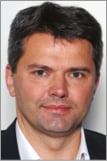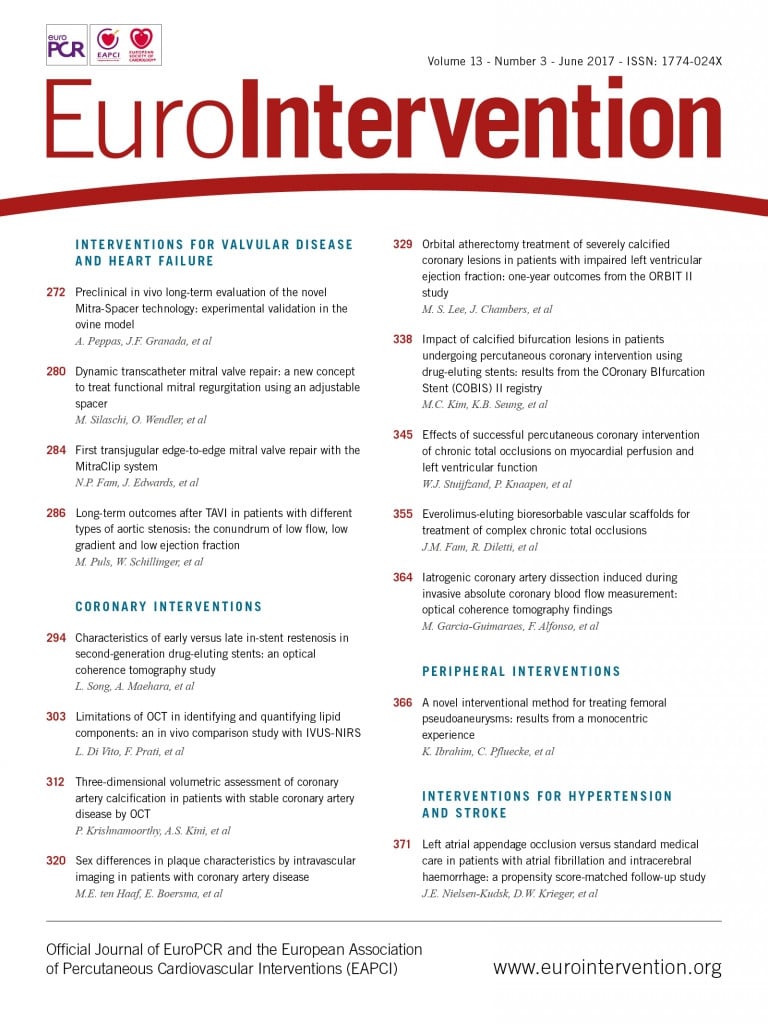Education and Training Committee – From Curriculum to Certification
Dariusz Dudek and Eric Van Belle, Committee Chair and Co-Chair
The coming months will prove exciting for the Education and Training Committee as we roll out different elements of our upcoming certification programme, beginning with the updated Core Curriculum, scheduled for presentation at the ESC annual meeting in Barcelona in August.
For many years the EAPCI has been interested in the creation of a voluntary, non-binding programme in order “to develop a standardised certificate for interventional cardiologists practising in the EU and ESC member countries so as to ensure comparable requirements for EAPCI certified specialists”. As we now envisage it, this programme will be composed of two parts, the first (“Part A”) concerning theoretical knowledge and based on a revised core curriculum, the second (“Part B”) being a practical assessment of the candidate’s skills.
The foundation of this effort is an updated core curriculum based, in part, on the original one established in 2006 under the direction of Carlo Di Mario. Our committee has brought together an expert task force from more than 20 European countries and a syllabus has been established. This syllabus now contains 48 separate topics and, while numbering less than the number of topics in the PCR-EAPCI Textbook (a key source and basis for training), it still needs to be consolidated further. Besides the textbook and the previous core curriculum, we will also be integrating the national interventional core curriculums as well as the ESC topics list.
Certification will be open to all national board-certified cardiologists or fellows undergoing cardiology specialist training (EAPCI members). “Part A” will comprise 100 multiple choice questions (MCQs) on five different tracks: coronary, invasive diagnostic assessment (20 questions); coronary, percutaneous interventions (50 questions); non-coronary, percutaneous interventions for structural and congenital heart disease (15 questions); peripheral percutaneous interventions (5 questions) and logistics, study interpretation and consensus on clinical endpoints (10 questions). We expect a majority of cardiologists to pass, with those who fail having to wait 11 months before trying again. “Part B”, taken under the guidance of recognised trainers and supervisors, will require the candidate to demonstrate the skills and professionalism needed in interventional cardiology.
Upon successful completion of Part A of the exam, candidates will receive an EAPCI certificate valid for 10 years, after which a re-certification exam might be required. We are also considering eventual publication of the Core Curriculum and certification programme here in EuroIntervention.

Prof. Dariusz Dudek, MD, PhD, FESC
Institute of Cardiology, Jagiellonian University Medical College, Krakow, Poland

Prof. Eric Van Belle, MD, PhD, FESC
Chief of the Heart and Lung Institute, Lille University Hospital, Lille, France
| NEWS ■ Don’t miss the free EAPCI webinar on 23 June with Dr R. Byrne, Profs M. Roffi and A. Baumbach! “Focus on bleeding management strategy in patients under oral anticoagulation after PCI – from randomised clinical trials to the individual patient.” Register online at: www.escardio.org/EAPCI - education section ■ EAPCI Micro-Fellowship Standards programme is now open! More info on this short-term observational programme taking place in a centre of excellence, due to be supported by a grant from industry partners at: www.escardio.org/EAPCI - education section ■ NEW! EuroIntervention EAPCI Supplement on National Registries – the essential snapshot of where we stand today in the practice of interventional cardiology in Europe. Published for EuroPCR 2017. More info on this exclusive edition at https://www.pcronline.com/eurointervention/Z_issue/volume-13/supplement-z/ |

